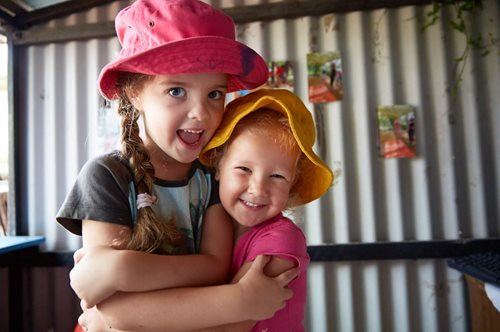Note: This article was updated in March, 2024
Unfortunately, the ‘caring’ nature of our industry does not mean that it’s immune to situations of bullying, and it can happen to people at any level, even management. For young children, early childhood services can play a vital role in preventing bullying behaviours from developing.
Workplace bullying is a major issue, with nearly half of Australian employees having experienced some workplace bullying during their lives (BeyondBlue). It can be overwhelming to know where to start when faced with this issue. Below are some great insights and resources you can access.
Preventing workplace bullying for adults
Have you ever felt or seen repeated unreasonable behavior directed at you or others at work, that affected people’s mental or physical health? That’s workplace bullying.
Especially if it included any of these:
- Abusive or offensive language or comments
- Aggressive and intimidating behaviour
- Belittling or humiliating comments
- Practical jokes or initiation
- Unjustified criticism or complaints
According to Safe Work Australia, there are ways that organisations can minimize the risk of bullying in the workplace. They list these as:
- Talk with staff to find out if bullying is occurring or if there are factors likely to increase the risk of workplace bullying.
- Develop a code of conduct or workplace bullying policy.
- Implement workplace bullying reporting and response procedures.
- Clearly define jobs and provide staff with the resources, information and training they need to carry out their work safely.
- Develop productive and respectful workplace relationships through good management practices and effective communication.
- Provide information and training on workplace bullying policies and procedures, available support and assistance, and how to prevent and respond to workplace bullying.
- Prioritise measures that foster and protect the psychological health of employees.
If you experience bullying at work, Safe Work Australia advises:
- Check if your service has a bullying policy and reporting procedure. It should outline how your organisation will prevent and respond to workplace bullying.
- If you feel safe to do so, calmly tell the other person that you object to their behaviour and ask them to stop it. They may not realise the effect their behaviour is having on you or others, and your feedback may give them the opportunity to change their actions.
- Seek advice from another person, for example a supervisor or manager, human resources officer or health and safety representative to help you work out if the behaviour you have been experiencing is workplace bullying, as early as possible.
Stamping out bullying often starts at the top
Beyond Blue research indicates that wider environmental factors including poor organisational culture and a lack of leadership are often the main drivers of workplace bullying.
Stamping out bullying could mean taking a look at the entire organisation from the top down and ensuring that there is a ‘strong, consistent approach to prevent inappropriate behaviour from escalating, and a positive, respectful work culture where bullying is not tolerated’ (Beyond Blue).
Putting a stop to bullying among young children
As young children enter early childhood settings, they bring with them a history of experiences with family, media, and other children. These experiences prepare children to be more or less likely to engage in bullying-related behaviour.
Bullying among young children is a significant concern that can have lasting effects on both the victims and the perpetrators. It involves repeated aggressive behavior with the intention to hurt, intimidate, or dominate another child who is perceived as vulnerable. This behavior can manifest physically, verbally, or through social exclusion. The impact of bullying on young children can be profound, affecting their self-esteem, academic performance, and psychological well-being.
Addressing bullying in young children requires a multifaceted approach that involves parents, educators, and the children themselves. It is crucial to create a safe and supportive environment where children feel valued and respected. Education plays a pivotal role; teaching children about empathy, respect, and the importance of kindness can help foster a positive culture that discourages bullying. Programs that encourage inclusivity and celebrate diversity can also reduce instances of bullying by promoting understanding and acceptance among peers.
Encouraging positive peer relationships and providing opportunities for children to work together in cooperative activities can help reduce the isolation that often accompanies bullying.
Ultimately, stopping bullying among young children is a collective responsibility that requires ongoing effort, education, and empathy. By fostering environments where all children feel safe, respected, and included, communities can mitigate the harmful effects of bullying and promote healthier, more positive interactions among young peers.
 Children can learn to develop healthy and respectful relationships while interacting with other children at early childhood centres.
Children can learn to develop healthy and respectful relationships while interacting with other children at early childhood centres.
A comprehensive set of online resources developed for early childhood educators by the US Education Development Center examines thirteen aspects of how to understand, prevent and intervene in bullying behaviour.
Download the full guide – Eyes on Bullying in Early Childhood
More references and resources
More articles about kindness and wellbeing from our Amplify! blog

CELA training relating to this topic
5 Ways to Better Conversations with Children
NESA Accredited PD
Find out more
About CELA
Community Early Learning Australia is a not for profit organisation with a focus on amplifying the value of early learning for every child across Australia - representing our members and uniting our sector as a force for quality education and care.